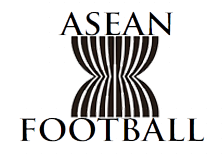ASEAN FOOTBALL FEDERATION
AFF-BUILDING RAPIDLY FROM SLOW BEGINNINGS
The Asean Football Federation (AFF) has grown from its humble beginnings in 1984 with six members to its current full complement of 10 members from the geopolitical region that has been making its impact in politics, economics and security issues.
Thailand, Philippines, Brunei, Singapore and Malaysia were the founder members with the presidency rotating among these members. Its initial activity was the organisation of a champions club competition but this was discontinued by the late 1980s for lack of response. Also, programmes for the advancement of football administration in the member countries fizzled out for lack of finance.
As the political entity, Asean, grew in membership in the decade of the 1990s to include the former Indochina states and Myanmar, a parallel growth in the membership of the AFF also occurred. But the AFF did not really take off until the Congress of 1996 when Tengku Ahmad Rithaudeen of Malaysia was elected to the presidency. The Congress also saw the appointment of Dato’ Paul Mony of Malaysia as secretary-cum-treasurer. Both Tengku Rithaudeen and Paul were principal officials of the Football Association of Malaysia.
In 1996 a substantial sponsorship was secured from AFC Marketing Limited, a Hong Kong based company that markets football in Asia. The finances enabled AFF to organise the Tiger Cup, a biennial competition for member countries. The inaugural Tiger Cup was held in Singapore with the six founder members participating but four other countries from Southeast Asia were also invited though they were not as yet members of AFF. Vietnam, Cambodia, Laos and Myanmar were to become members shortly afterwards. Thailand were the inaugural Tiger Cup champions.
The Tiger Cup in 1998 was hosted by Vietnam. Two qualifying rounds were held prior to the final round in Vietnam to enable four countries to qualify to join the defending champions and hosts. Singapore emerged the champions this time.
For the third edition of the Tiger Cup, there will be no qualifying round as all 10 member nations will play in two group matches in two cities in Thailand in November before converging for the semi-finals and final in Bangkok.
The AFF also organises the Dunhill Cup, a biennial competition inaugurated in 1997 to which three AFF members are invited to play against teams from East Asia and other regions of the world. The first Dunhill Cup was held in Kuala Lumpur and the second was held in Ho Chih Minh City in 1999.
The AFF comprises a Council whose members are the President, two Vice Presidents, the Secretary-cum-treasurer, and a member from each of its affiliates. There are two main committees – the competitions committee and the technical committee. The former is headed by Pengiran Matasan Pengiran Matusin of Brunei and the latter by Renee Z. Adad of the Philippines.
The AFF Council meets once in three months. Last May, the AFF Council met in Kuala Lumpur while the Asian Football Confederation was in Congress. The AFF Council gave a briefing of its development plans to visiting FIFA president by J. Sepp Blatter who was reportedly highly impressed with the programmes and progress made by the body thus far.
